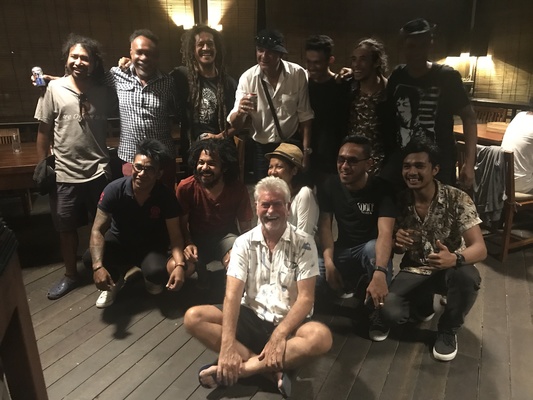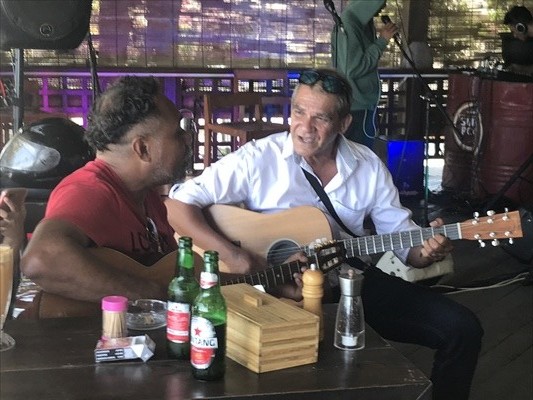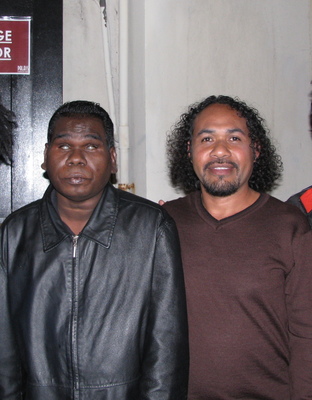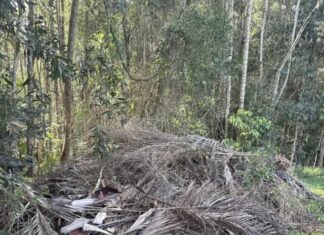I’m back in Timor-Leste with Shaun Cairns of Tewantin-based Panga Productions, putting the finishing touches on the feature documentary that has been our labour of love for two years now.
Since our first filming trip to this ruggedly beautiful but blood-soaked island back in August 2017, our film project, called Generation 99, has frustrated the hell out of us and nearly broken the bank on several occasions, but I’m immensely proud and quite humbled that the Timorese government has made it possible for us to complete the film, and it will have its world premiere during the week of commemoration of the 20th anniversary of the 1999 referendum that gave this brave little country its independence after almost half a millennium of occupation.
Sadly, the invaders left Timor-Leste in tatters as they raped, pillaged, murdered and torched everything they saw on their way out. And yet, out of that unimaginable tragedy, a new generation of artists, musicians, writers and film-makers has emerged whose vision is to honour the sacrifices of the past while describing the blue-sky future of this remarkable place. Basically, that’s the theme of our film, which will screen alongside a new work from the legendary British cameraman Max Stahl, whose incredible coverage of the 1991 Santa Cruz Massacre was the beginning of the end for the brutal Indonesian occupation.
Since Indonesia has been our second home for 40 years, at times it’s been difficult for me to document what happened in Timor-Leste, but the many friends we’ve made in the Timorese cultural world have helped me understand that reconciliation and forgiveness are their means of moving forward.
This sentiment was brought home to me again last Saturday at an extraordinary and, dare I say it, historic afternoon of music at the shabby-chic Esplanada pub on the waterfront in Dili. Timorese singer/songwriter Joviana Guterres and I put together a three-hour show at a moment’s notice and on a shoestring budget, but it was roughly the equivalent of, say, Paul Kelly, Midnight Oil and INXS rocking up for a jam at your corner pub. Let me explain.
Our objective was to fill in some holes we had in our film for live performances from some of the key Timorese musicians from the past 50 years. This meant bringing together the surviving members of three generations of bands whose music, banned for many years under occupation, had been the salvation of so many people, the soundtrack of the resistance.
The starting point was Toto Lebre, an amazing multi-instrumentalist who was the youngest member of the groundbreaking Cinco Do Oriente in the early 1970s, and is now its sole survivor. Although they played mostly Creedence covers at the start, Cinco had attitude, and they didn’t like being subjugated by the Portuguese, and then by the Indonesians. They were card-carrying members of the Fretilin resistance, and when revolutionary sentiment began to infiltrate their lyrics, three of their members were “disappeared” outside the Hotel Dili after a gig, and were never seen again. Toto, still a teenager, ran for the hills.
At about the same time as Toto was hiding in the mountains, four-year-old Ego Lemos and three siblings were taken by their parents into a hastily-built camp deep in the jungle, where they were to spend the next half-dozen years avoiding militia patrols and living hand to mouth. But malnutrition and bullets claimed most of the family, and only Ego and his mother survived, eventually moving back to a safe house in Dili.
By the mid-1990s, the Indonesian occupation force had begun to loosen its ban on Timorese music, and Ego Lemos had formed a band that was soon the most popular in Dili. One night at a gig he was approached by Toto Lebre, who suggested that he call the band New Cinco Do Oriente, and once again carry the resistance flag on stage, at least metaphorically. Frightened of the possible consequences, Ego accepted the challenge anyway, and Cinco was once again the voice of free Timor.
In the new century Ego Lemos became his country’s greatest musical ambassador, touring the world and playing with Paul Kelly, Midnight Oil and with the late Geoffrey Gurrumul Yunupingu, who became his close friend. Today Ego is the head of Timor-Leste’s permaculture program, and is still the troubadour of Timor. Last Saturday at the Espy, my friend Ego Lemos sang the songs of revolution and survival with more energy and gusto than perhaps anyone, except the other great veteran of the Timor-Leste music scene whose spirit I have come to know and love, Toto Lebre.
There were a few tears, and plenty of beers, but mostly there was joyous music, the kind that makes you feel glad to be alive, particularly when you know you are in the company of so many who could easily not be.











